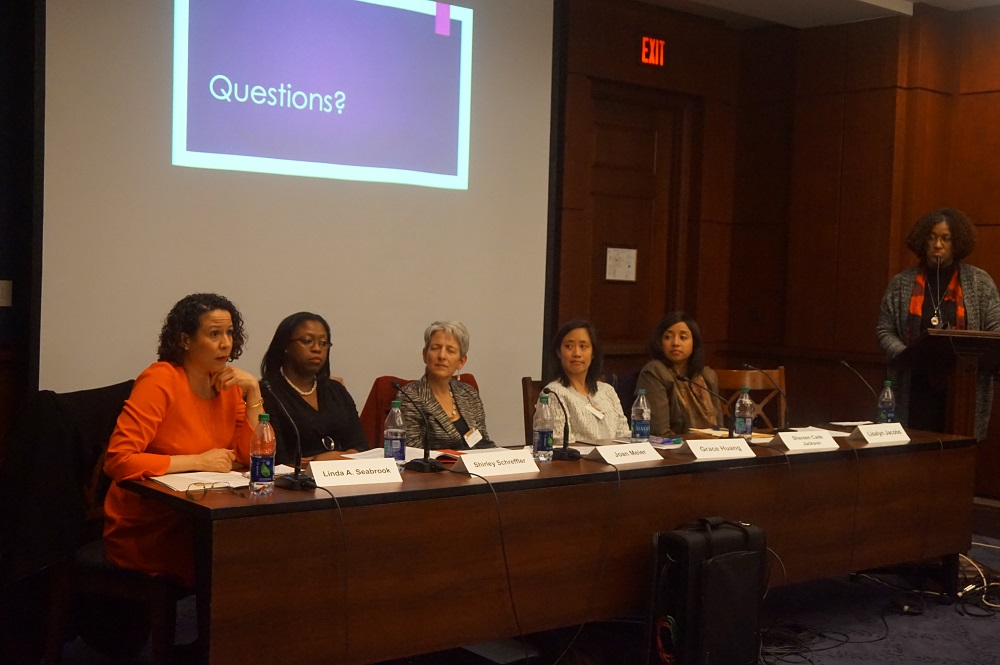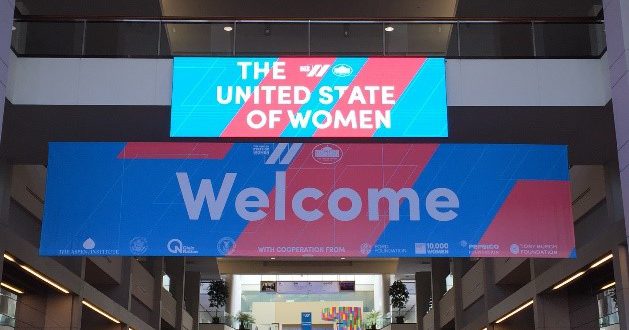Global Gender-Based Violence and the Workplace Congressional Briefing

On February 25th, 2016, FUTURES joined prominent women’s rights groups, and anti-violence organizations, in a briefing to inform Congress on the unique vulnerability of victims and survivors of domestic and sexual violence, to employment discrimination and workplace barriers, and the impact of these barriers on the economic security of these victims and survivors.
The briefing, organized in cooperation with the U.S Senator Patty Murray and Congresswoman Roybal-Allard, addressed the need for safe leave and other employment protections from the perspective of employers, law enforcement, survivors, and domestic violence advocates. It also discussed the Security and Financial Empowerment (SAFE) Act introduced by the two Congresswomen, which ensures that victims of domestic violence, sexual assault and stalking have the financial independence they need to break free from their abusers.
At the briefing, Congresswoman Roybal-Allard expressed her concern for American women’s security and reaffirmed her commitment to providing economic security for survivors of domestic and sexual assault.
“I will keep fighting for the SAFE Act and other measures to protect survivors of this abuse.” –Congresswoman Roybal-Allard
According to a 2012 study, nearly 33 percent of women killed in U.S. workplaces from 2003-2008 were killed by a current or former intimate partner. A 2005 phone survey of 1,200 full-time American employees found that 44 percent of full-time employed adults personally experienced domestic violence’s effect in their workplaces, and 21percent identified themselves as victims of intimate partner violence.
Two thirds of low-wage workers are women and for many, financial instability is a reason for staying in or returning to an abusive relationship, and they are often less likely to report incidents of violence because they are afraid of getting fired. During the briefing, FUTURES General Counsel, Linda A. Seabrook echoed the important role employers have in helping victims and survivors stay safe.
“The impact of domestic violence & sexual violence on women is profound but all the most devastating to low-wage workers. No woman should have to choose between her safety and financial security of herself and her family.” -Linda Seabrook, FUTURES
 Domestic violence, sexual violence, dating violence, and stalking are workplace issues and impact the workplace even if the incidents occur elsewhere. The place of employment often becomes an easy target because the perpetrator can readily locate or access an intended victim.
Domestic violence, sexual violence, dating violence, and stalking are workplace issues and impact the workplace even if the incidents occur elsewhere. The place of employment often becomes an easy target because the perpetrator can readily locate or access an intended victim.
For this reason, it is important that employers enact policies that provide clear guidelines on how they can prevent and address domestic and sexual violence, and stalking in the workplace, provide paid safe leave and make accommodations available that protect survivors from being fired.
Here is how you can take action:
- Visit Workplaces Respond to Domestic and Sexual Violence, a National Resource Center to learn more how you can address the impact of violence in the workplace.
- Follow us on social media: Twitter @WorkplaceNRC and Facebook @WorkplacesRespond.
- If you are an employer, adopt a workplace policy as part of your commitment to a healthy, safe, and more resilient workplace.
- Use the FREE resources in our Workplace toolkit to help raise awareness, address employment issues and connect people in your workplace to the assistance they may need.






